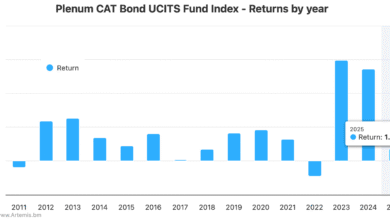Massachusetts Economists Tentatively Project Weak Growth Ahead
Economist see “lagging job growth” as reason for Mass. growth trailing U.S.
MAY 12, 2025…..The Massachusetts economy is expected to grow at minimal rates in the second and third quarters of this year, according to local economists, who released data Monday showing the state economy contracted at a greater rate than the U.S. economy during the first quarter.
Analysts at the economic journal MassBenchmarks reported that real gross state product decreased in Massachusetts at an annual rate of 1.1% during the first quarter. That compares to a 0.3% decline for the U.S. in the first quarter, as the U.S. Bureau of Economic Analysis reported in late April.
The inflation rate in the Boston metropolitan area also exceeded the growth in inflation nationally. The Consumer Price Index rose at a 5% annual rate in Boston versus 3.8% for the U.S. in the first quarter, according to the U.S. Bureau of Labor Statistics.
U.S. GDP increased at an annual rate of 2.4% in the fourth quarter, compared to 1.9% for state GDP, according to the BEA, and MassBenchmarks said “lagging job growth is the main reason Massachusetts trailed the nation in GDP growth most of last year and during the first three months of 2025.”
State legislators are closely watching economic indicators as they try to tackle affordability issues plaguing the state and keep watch over state spending due to uncertainty over traditional federal supports.
In its latest observations, MassBenchmarks said President Donald Trump’s global tariff plans led to a surge in imports at pre-tariff prices and weakened consumer spending that could trail off further.
“Since February, economic volatility and uncertainty has been fueled by a series of tariff announcements, threats, and postponements,” the journal published by the University of Massachusetts Amherst Donahue Institute in cooperation with the Federal Reserve Bank of Boston said. “This has had a demonstrable and negative impact on both state and national consumer and business confidence and helps to explain weakening consumer spending in the first three months of 2025. This volatility is roiling financial markets, which have experienced meaningful declines in the wake of a series of announcements of major changes in federal fiscal and trade policies.”
Trump’s “Liberation Day” tariffs were announced April 2, as the second quarter began, and economists said “these policy shocks have changed expectations” even though only two tariff increases took effect in the first quarter: a 10% tariff on China took effect Feb. 4 and steel and aluminum tariffs went into effect March 12.
Markets were rising Monday morning on the heels of news that the U.S. and China had reached tariff agreements.
“Today, the United States issued the first joint statement on trade in many years with China after successful negotiations over the weekend in Geneva, Switzerland,” the White House said. “Both parties affirmed the importance of the critical bilateral economic and trade relationship between both countries and the global economy.
Looking ahead, MassBenchmarks’ Leading Index projects Massachusetts GDP will grow at an annual rate of 0.7% in the second quarter and 1.2% in the third quarter, compared to average growth projections for U.S. GDP from a Wall Street Journal survey of economists of 0.8% for the second quarter and 0.6% for the third.
“These projections are tentative and could change abruptly depending on the course of U.S. tariff policy,” MassBenchmarks reported. “The real effects of increased tariffs on economic growth – as opposed to the effects on expectations or financial markets, will develop with a lag and so impacts on employment and output are likely to be revealed later this year, perhaps by the fourth quarter.”
During a speech in Ireland on Monday, Adriana Kugler, a member of the Federal Reserve System Board of Governors, said data show a “resilient economy” but she expects “growth this year to be slower than last.”
“Looking ahead, I am monitoring the effects of changing trade policies, as I see them as likely having a significant effect on the U.S. and global economies in the near future,” Kugler said, according to her prepared remarks. “Trade policies are evolving and are likely to continue shifting, even as recently as this morning. Still, they appear likely to generate significant economic effects even if tariffs stay close to the currently announced levels, and the uncertainty associated with these tariffs has already generated effects on the economy through front-loading, sentiment, and expectations.”


